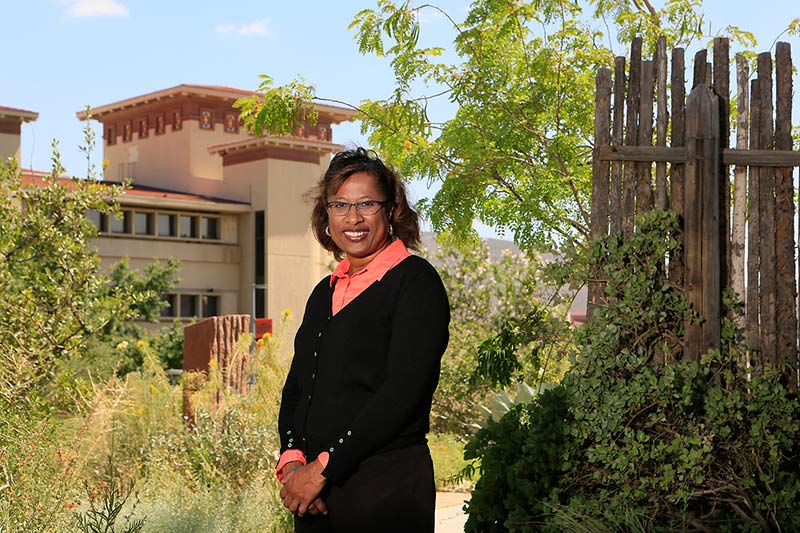Faculty Profile: Deidra Hodges, Ph.D.
Last Updated on November 04, 2019 at 12:00 AM
Originally published November 04, 2019
By UC Staff
UTEP Communications
Deidra Hodges, Ph.D., draws on her military background and experience in private industry to create impactful lessons for her engineering students. She hopes to harness El Paso's sunny weather for her research into solar energy.

Name: Deidra Hodges, Ph.D.
Department/College: College of Engineering, electrical and computer engineering.
What do you teach? Applied quantum mechanics, applied photovoltaics, renewable energy, energy sustainability, and integrated circuits and semiconductor devices.
How long have you been a teacher? Five years.
What’s your favorite classroom activity or teaching technique? An activity that I call “Engineering 101,” where I present a real-world problem to the students as it pertains to the lecture, and I engage them in coming up with their own engineering solutions to the problem.
What background and experience do you have in your field of study that benefits your students? I have worked in industry for IBM and Martin Marietta (now Lockheed Martin) and I was an officer in the U.S. Navy Reserves Engineering Field Division. Both my past industry experience and military experience benefits my students in the field of study.
What do your students like best about your classes? My students like the methods I use to deliver the course content, which is a variety of tools, including lectures, videos, student projects, student presentations, hands-on experiments, outdoor solar labs, field trips to El Paso Electric solar power plants, interactive discussions and fairness in course work, exams and grading.
What do you love most about being a teacher? The one thing I love the most about teaching is being able to convey a complex subject matter or topic, to student, so that he or she gets it, and when they say, “oh.” At that moment, I realize that they understand, and they are empowered and that puts a very big smile on face.
What are your hobbies? When you’re not teaching, grading or preparing for classes, what are you doing? I am either in the lab doing research or at home doing more research. I do love deep sea fishing, “rig hopping” and gardening, which I don’t get a chance to do as often as I would like. But it’s OK because the research is very rewarding, the discovery of science in the lab — what works, what doesn’t work and why.
What’s your favorite place on campus? My lab and Starbucks.
What’s your favorite UTEP event, and why? My favorite UTEP event was the R1 celebration at Centennial Plaza. The energy of the crowd was phenomenal. I never saw the UTEP band perform, along with the cheerleaders, and then (President Emerita Diana) Natalicio took the platform and gave an awesome speech, acknowledging everyone’s contribution to the achievement. I will never forget it, and I have mementos on my desk today.
What advice would you give to an incoming UTEP student? Get involved with student organizations and find faculty to get a research experience with. To also take advantage of the many opportunities available, to travel, study abroad and to do research!